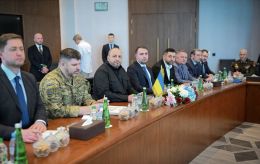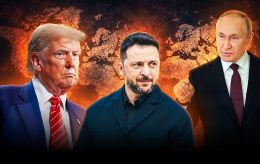PACE Vice-President Lord Don Touhig: 'One can't be clear what President Trump is seeking to do'
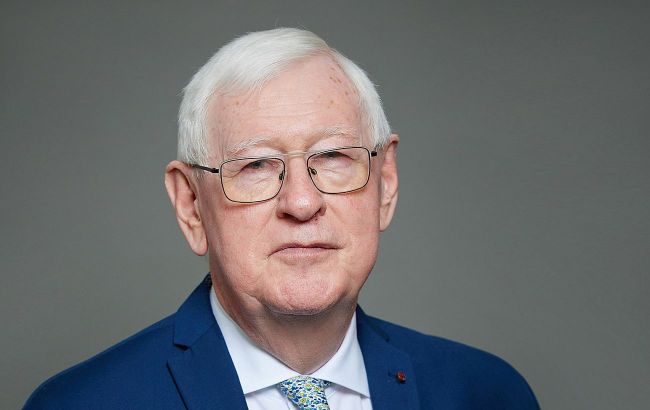 Lord Don Touhig (photo: wikipedia.org)
Lord Don Touhig (photo: wikipedia.org)
Lord Don Touhig, Vice-President of the Parliamentary Assembly of the Council of Europe, analyzes why the White House's efforts failed to end Russian aggression against Ukraine, Donald Trump's unpredictability, the confiscation of Russian oligarchs' assets, and the popularity of radicals across Europe in an interview with RBC-Ukraine.
Key questions:
- Why have Trump's peace efforts failed?
- Can Europe and Ukraine rely on the US?
- Why is the confiscation of Russian oligarchs' property an effective method of pressure?
- Is there a threat of right-wing and left-wing radicals coming to power across Europe?
"I think it's extremely difficult for Ukraine and for NATO at the moment to judge what President Trump will seek to do or will do. We just cannot be certain. Today it's all to take all your lands back. Tomorrow you've got to make concessions," Baron Touhig, a member of the British House of Lords who also heads his country's delegation to the PACE and is its vice-president, told RBC-Ukraine.
According to the Lord, Trump's unpredictability is one of the reasons why peace talks have not yet yielded any real results. Another reason is, of course, the position of Russia. According to Lord Touhig, with his latest provocations against European countries, Putin is, on the one hand, trying to test their reaction and, on the other, to demonstrate the strength of his army, which in reality does not exist.
The Lord also has a solution for how to significantly increase pressure on the aggressors: in addition to confiscating Russian state assets (which, although very slow, is progressing), the West must also take action against the private assets of Russian oligarchs in Putin's circle. Although the lord agrees that this will not be an easy task. "It will be difficult, of course, it will be difficult. But you just need one breakthrough, and then they start to panic, and then they start to worry," he says.
– We all see what's happening in Ukraine as Russia intensifies its attacks. In your opinion, does this indicate that Russian leadership really has no intention at all to get involved in some sort of real, meaningful peace conversations in any foreseeable future?
– Well, the people of Ukraine are not just defending their homeland, they're defending the rest of us in Europe. And we've seen with the Russian government and President Putin in particular, in times past, where he has created a problem or an issue, then after a while, seems to come up with some solution that gives him what he wants, and everybody says, 'Oh, what a good man he is.'
– Yes, this is his way.
– This is his way, and it seems to me that this is what he is going to continue to do. It's not clear to me what his relationship is with President Trump, and therefore, I just wonder whether this intense bombardment of Kyiv and the recent incursions into NATO space and the rest of Europe are stretching a game to see what he can get away with. And I don't think that President Putin is at all serious about peace negotiations.
President Putin is about seizing Ukraine.
– So, is this why all the efforts by the Trump administration haven’t delivered any practical results so far?
– I think it's a great problem because one can't be clear what President Trump is seeking to do. I mean, one day he says, 'Oh, there are going to be tariffs on this, ' the next day, there are no tariffs. So one day, he says, 'Yes, I can do a deal with Putin'. Then he can't. Then he says that I'm going to work to get this sorted out, and he doesn't. So I think it's extremely difficult to deal with the American President at the moment, with his administration, in that it isn't clear what he wants to do.
I have no doubt he wants to see the conflict ended, but I'm not sure he's committed to the idea of an independent Ukraine. He has recently reassured President Zelenskyy that Ukraine should recover all its lands. It was quite a surprise.
But I'm not sure he's serious about it because it is very difficult for the present American administration to be sure precisely what he wants to achieve, what he can achieve.
And it is therefore very, very difficult. Ukraine relies greatly upon American support, and I have no doubt in my mind that if it had had more support, then there would be greater opportunities to resist the barrage of Kyiv at the moment.
 Trump meets with Zelenskyy at the White House (photo: Getty Images)
Trump meets with Zelenskyy at the White House (photo: Getty Images)
So I think it's extremely difficult for Ukraine and for NATO at the moment to judge what President Trump will seek to do or will do. We just cannot be certain. Today it's all to take all your lands back. Tomorrow you've got to make concessions.
So I don't think he is seriously engaged in the peace process. I think it's a box tick. If it's peace, he's 'brought peace to Ukraine'.
– Another 'war he ended'.
– Another 'war he ended'.
– And we are not sure also about that amount of pressure that he is willing or can apply against Russia, against China, are we?
– We can't be certain because, as I said, we saw that with the tariffs and so on. Or we hit someone with a tariff, and then it's all gone. It's just impossible to follow the man from one day to the next. So I don't think he is seriously engaged in the peace process.
– In dealing with such an uneasy person as President Trump, are Europe as a whole and Ukraine particularly doing everything right?
– No, I think we should be doing more in Europe on sanctions. I mean, the people who run Russia are very rich. They've got rich on the backs of hard-working Russians.
They're exploiting their own people. And to me, and I see this in other instances, possibly Georgia as well, we should be going for the personal wealth of these people. Take away their power, their money.
This is what they're about. The fact that they've got power over a country is a bonus. But I don't think we're doing enough to cause them grief and pain and to worry about their wealth.
Because their wealth gives them the power. And I think we should do much more in terms of not just seizing the assets of these people, but using them, using them to rebuild Ukraine, using them to give money to Ukraine, to support Ukraine. We could be doing much more.
If I look at the United Kingdom, I can just imagine that officials in the Treasury, perhaps, in London, would be saying, you know, be careful about seizing someone's assets because X, Y, Z, people, companies will not want to invest in Britain. And I can understand their concerns. But in these circumstances, I think we have no choice but to go and seize their valuables, their money, their power, their assets.
– We see how difficult the process of seizing Russian state assets frozen in Europe is. And obviously, seizing the personal assets of different Russian oligarchs, of Putin's inner circle, will be way more difficult. So, in your opinion, is it even realistic?
– It will be difficult, of course, it will be difficult. But you just need one breakthrough, and then they start to panic, and then they start to worry. Focus on it. Focus on taking the individual's wealth from them.
That will make them wake up, those around Putin. Because they don't want to be impoverished.
– You emphasize the personal wealth, not the state assets.
– Go for the state. But also, the power of these individuals is their wealth. Go for the individuals. Work at it. Find ways to do it. It can be done.
And I think we should be working hard to seize the personal wealth of these individuals, as much as those around Putin.
– So, political will is required.
– And you have to be determined. You have to have governments that are going to say, 'We are going to do this'. I'm not sure we're there yet. I don't believe we are there in Europe, the rest of Europe.
– In the rest of Europe, the continental one?
– I don't think so. I mean, we've talked about it in debates about what's happening in Georgia, seizing the wealth of individuals. And there was a time, I think, fairly recently, where it looked like there were going to be seizures of assets of individuals in Georgia. And there was a slightly different tone to the way they were responding.
It's gone now. But you have to go for that. And it will not be easy, but we should show it and do it. And make sure they know we're going to go for them.
– I want to ask you also about the wave of recent Russian attacks on NATO countries and different provocations of all sorts. We see drones flying here and there over the airports all over Europe. Do you feel that Europe really started to feel threatened, directly threatened by Russia, after what we've seen last month in Poland and elsewhere?
– I think it's there, but it's down the scale of things. Because I think what Putin is seeking to do with these incursions is to show that he has the ability to do that and to test what response he gets from NATO and the Western nations in Europe. And it's almost like 'I'm going to win this war, look what I'm doing. I'm destroying, killing people, destroying Kyiv, and so on. Looks like I can pop into your country, do that over your country, and so on.'
He's building up that impression that he has power. I'm not sure that the Russian military either really does have this power.
I don't think it has that power, but he is trying to demonstrate. Night after night on our televisions, we see another attack on Kyiv. Then the next morning, there was an incursion over Estonia, an incursion over Finland, whatever.
And I think he is giving the impression that he has greater power in his military than he does. And it doesn't have that. And he knows it doesn't have that.
– What do you think of a European or broader – NATO response? In particular to the Polish case. We all heard some comments saying that the response was brilliant, efficient, and so on. Whereas in Ukraine, in my country, the opinions were directly opposite. This was not something that would deter Putin's further attacks.
– I don't think it will. The big crisis and the big problem, of course, NATO has is how it responds.
If it's a military response, then we could be in a wider conflict. And nobody wants that. And certainly the West doesn't want that.
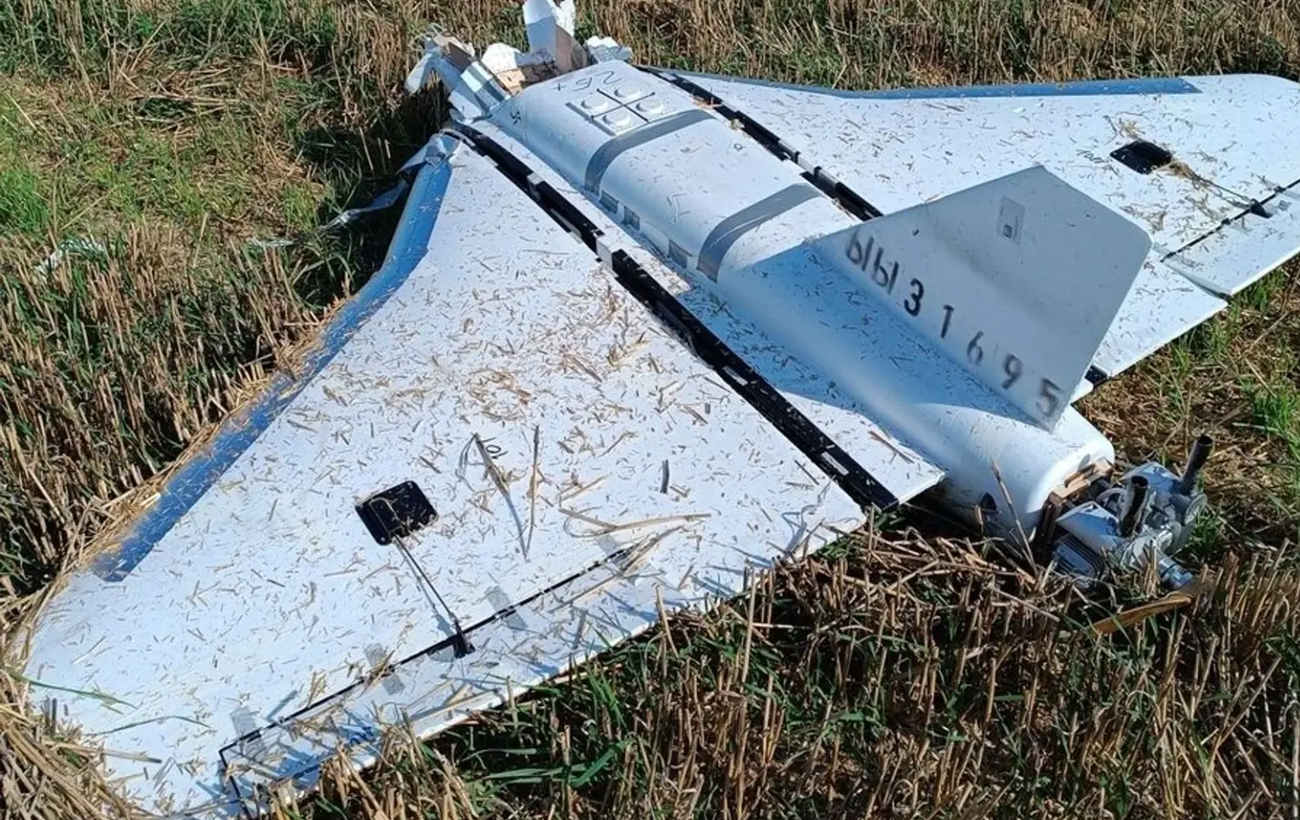 Russian drones in Poland (photo: x.com/jacekprotas)
Russian drones in Poland (photo: x.com/jacekprotas)
And please forgive me, I don't mean this in the wrong way, but people perhaps are tired of this ongoing crisis in Ukraine and so on and so forth.
I mean, I think people in Ukraine, obviously, they're suffering terribly. And so after such a period of time, well, we have to show something, don't we?
And so I think what NATO has done is minimal. I'm not sure you see at the moment, with the lack of a clear American commitment to NATO, that the rest of NATO wants to take the risk of doing something without the United States. And President Trump might denounce them the next day for it.
I think it's very difficult. In former times, America would have taken the lead within NATO on these matters. It's not happening now.
– So as of now, is Europe able to rely on the US as its main defense partner, US defense umbrella, or is that not the case anymore?
– I think that is questionable now. And this is why it is important.
I mean, I believe me, my own country, Britain, and France, the two nuclear powers in Europe, I think we should be taking the lead in NATO, and the possibility that there will be a vacuum, that the Americans might suddenly pull back. And it's possible.
I would hope it doesn't. But I think that President Trump has constantly said that NATO has never paid up, and the rest of Europe should be doing more. And I think that there's some justification for that.
But we're just not ready at the moment. And there's such an uncertainty. You see that in Ukraine, President Zelenskyy is dealing with President Trump. You can't be certain from one phone call to the next that it is what you agreed on now; 10 minutes later, it's not on. It's very hard to make a business.
And this is what Putin is exploiting. He's giving the impression he has greater military might than he does. And he's exploiting this uncertainty, the worry in Europe that America will not be there if there is a real big standoff issue.
And he is seeking to convey that the defeat of Ukraine is inevitable. And that will only feed those who say, well, it's going to happen, well, okay, sad, but that is a big danger for us.
– You said that many people in Europe are tired of the war, and even being a Ukrainian, I sort of understand the nature of these feelings. And all the European countries, EU and NATO countries, are democracies. They have elections. They have politicians who think about the next elections. So there is a permanent cost-of-living crisis here, and there is inflation, all sorts of problems. So is it really possible for the UK politicians and other politicians, at least in major European countries, to persuade the voters that we should spend like 100 billion euros for defense and not for some social welfare stuff?
– Well, in many cases, of course, the economies of many countries in Western Europe are now in difficulties. But in terms of Britain's concern, if the government came out tomorrow and said they could spend X billion on the armed forces, they would be applauded. I was a defense minister. I know how important it is to the British people.
And so the public will say, OK. But at the moment, there's this lack of trust in all politicians. I think not just in Britain, but across Western Europe, and some of the problems they've got in France as well.
But certainly in terms of the British people, they wouldn't complain, in my view, about strengthening our armed forces, because it's always been patriotic. We should have good, strong armed forces.
But, again, we can't underestimate the ability or the willingness and the determination of Putin to just present that as, you know, your country's getting ill-afforded, you're only doing it for Ukraine. And is it worth it?
– Maybe it's better to build another school or hospital instead.
– I don't take part in social media. But I know that a lot of people believe what is important to them is on social media. And I think we're underestimating what the Russians and others are doing in terms of messaging on social media, convincing people that there is this issue and that issue.
And having spent 27 years in newspapers and publishing, I know that facts don't matter. What perception matters, what people believe to be the case, matters. That is not factual.
They believe it, and that's it. And a lot of this is on social media.
Just as an aside, I was talking to somebody I know the other day after President Trump warned that women taking paracetamol in pregnancy could cause autism. I'm a vice president of the National Autistic Society in Britain. I work with young people and children with autism.
It's total nonsense. But I'm talking to people, we're seeing things on social media. And what they say, perhaps there's something in it. Let's better avoid this. Just in case. And a lot of us, a lot of people in mainstream public life, politics, are not as engaged. I'm not on social media, but a lot of messages are coming that way.
It's a below-the-radar way of getting a message across. And I think the Russians are doing this in all sorts of ways. Our security services would know better.
– My very last question also refers to social media, I think, at least partly. So is it part of the answer to the question, why are the radicals of all sorts on such a rise across Europe? We see here and there, France, Germany, the United Kingdom, all over Europe. In 5 years, is there a possibility that radicals, left radicals, right radicals, will come to power in major European countries like yours?
– It's a big danger. And I think it's a testament to the fact that a lot of people now have total distrust in politics and politicians. I mean, traditionally in Western Europe, we've had party centre-right, party centre-left.
I love France. I come to France a lot. I can remember the time when the socialist party was strong and the de Gaulle centre-right party was strong.
Now they've gone. So now you've got extremes of left and right coming in the middle. And we've seen in the United Kingdom that the Conservative Party on the right is in serious trouble.
And for all sorts of reasons, the party of the left, the Labour Party, is in trouble. And you're getting this intolerance come through, I think.
A dear friend of mine, Leo Abse, was an MP for 30 years, and he was Jewish.
His family escaped pogroms in Russia and came to Western Europe, lived in Britain. And when he retired, he said, 'I only have one piece of advice: tolerate everyone, tolerate everything. Just never tolerate the intolerant.'
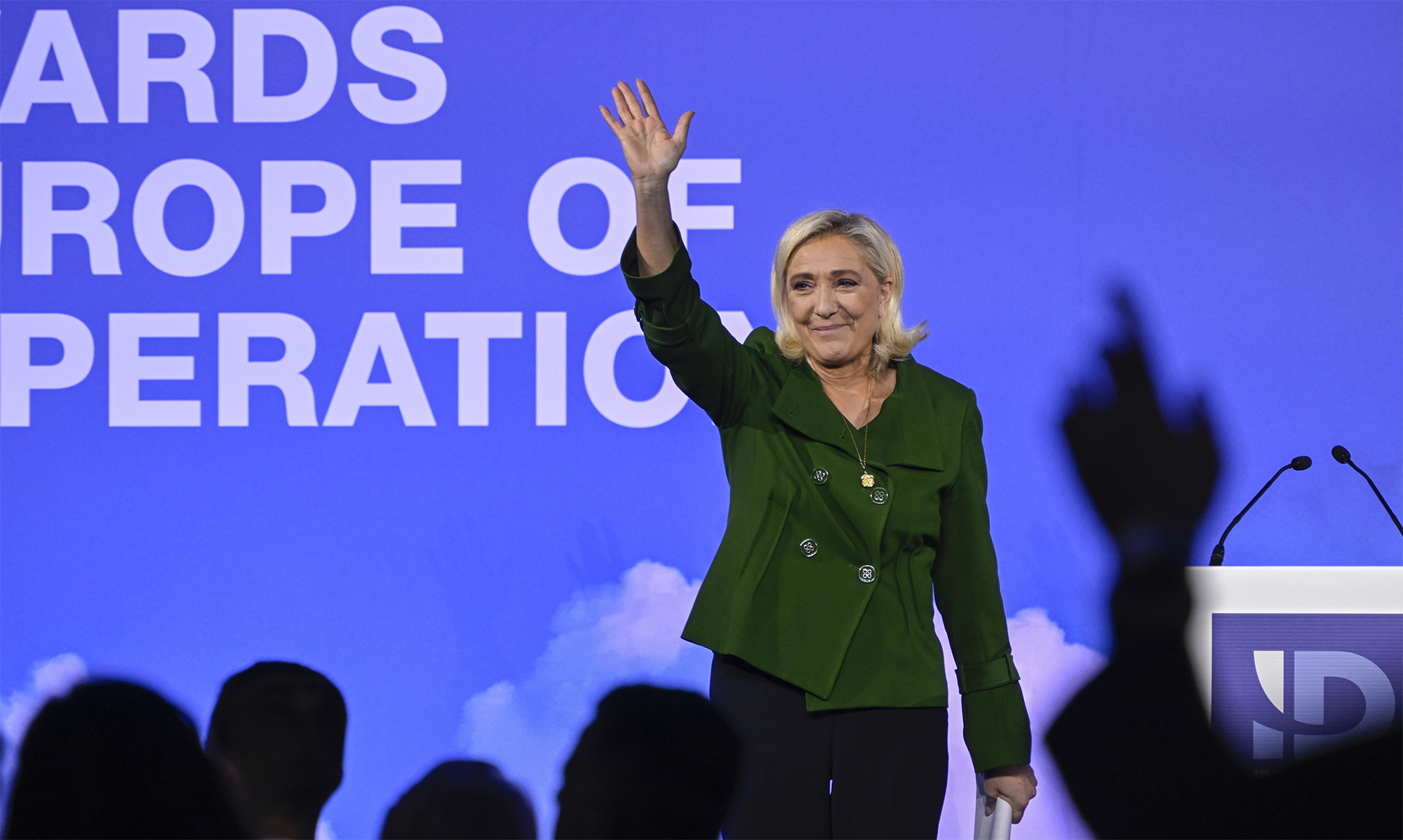 French far-right leader Marine Le Pen (photo: Getty Images)
French far-right leader Marine Le Pen (photo: Getty Images)
And I think a lot of people today are attracted by some of these messages that we have an answer. Very simple, very simple answer to everything: 'We can do this. We can stop that. We can immediately end this. And you can't.'
I think this is going to be very challenging for the parties of the center-right, the center-left to regain the confidence of people. At the moment, it is a struggle.
– And as of now, they mostly fail.
– At the moment, I think all across Europe, the parties of the center-left and center-right are being disregarded because people do not believe they have the answers. And as I say, it isn't facts. It's what people perceive to be the case.
I can give you an example. In the 2019 general election in Britain, a man came up to me and said, 'You don't know me, you used to be my member of parliament. I'm telling you why I am voting conservative for the first time in my life.'
He was ex-service and he didn't like Jeremy Corbyn. He didn't think Jeremy Corbyn was the right man to support the military. And secondly, he was in favor of Brexit.
And I said, I understand your concerns, but we need lots of good labor MPs because if the conservatives win, we've got to have a strong opposition. And I said, Boris Johnson is a liar, a charlatan, and a cheat. Oh, he said, 'yes, he's a liar, a charlatan, and a cheat. But still, I vote for conservatives. But I like him.'
This is what you've got. You've got this a lot now that no matter the failures of individuals. Yeah, but 'I like him.'
And this is how our politics, I think, is going. And I say that the mainstream parties of center-left and center-right have got to somehow re-engage with their peoples and their nations. That's a wider thing.
But the danger we all face is that people of intolerance and extreme left or extreme right gain a foothold in power. And that will be dangerous for the whole of Europe.
